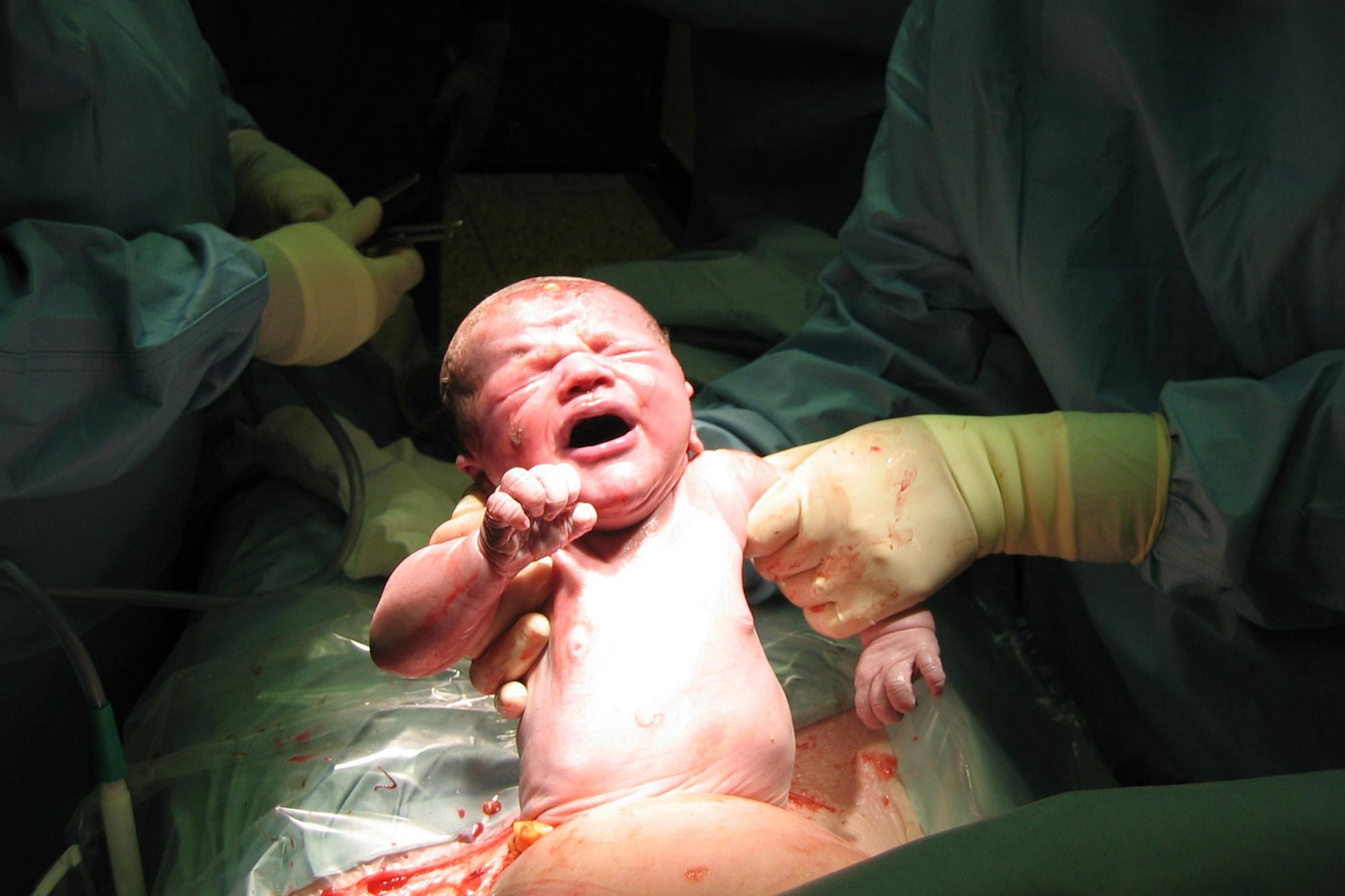
Cesarean births are not linked to an amplified risk of foods allergy for the duration of the very first year of life, in accordance to a new review.
Cesarean deliveries are not related with an greater danger of food allergy for the duration of the to start with 12 months of lifetime, in accordance to a new analyze.
The investigate discovered cesarean supply, possibly with or devoid of labor, or elective or crisis, when compared to vaginal beginning does not impact on the probability of foodstuff allergy at 12 months of age. Led by the Murdoch Children’s Research Institute (MCRI), the study was revealed right now (May perhaps 18, 2022) in the Journal of Allergy and Scientific Immunology: In Observe,
Murdoch Children’s Associate Professor Rachel Peters reported the association concerning mode of supply and the chance of meals allergy experienced remained unclear prior to this study owing to the lack of studies linking correct foods challenge results to in depth details on the style of cesarean supply.
The review associated 2045 infants from the HealthNuts study, with data joined to the Victorian Perinatal Details Collection to supply detailed information on delivery elements.
The examine identified of the 30 % born by cesarean, 12.7 per cent experienced a foodstuff allergy in contrast to 13.2 per cent born vaginally.
“We found no significant discrepancies in food items allergy for infants born by cesarean supply in comparison to people born by vaginal shipping,” Associate Professor Peters said. In addition, there was no big difference in the likelihood of meals allergy if the cesarean was carried out in advance of or after the onset of labor, or whether or not it was an emergency or elective cesarean.”
Associate Professor Peters stated it was believed a potential link amongst cesarean delivery and allergy could reflect variances in early microbial exposure (microorganisms from the mother’s vagina) all through shipping.
“The toddler immune system undergoes immediate growth during the neonatal interval,” she claimed. Mode of delivery may perhaps interfere with the ordinary advancement of the immune system. Babies born by cesarean have a lot less exposure to the microbes from the mother’s gut and vagina, which influences the composition of the baby’s microbiome and immune method improvement. Even so, this does not surface to play a key function in the development of foods allergy.”
Affiliate Professor Peters said the results would assist caregivers in analyzing the hazards and gains of cesarean shipping and provide reassurance for mothers who demand these kinds of interventions that there was small evidence that their baby was at an greater hazard of meals allergy.
Australia has the highest costs of childhood foods allergy in the planet, with about a person in 10 infants and a person in 20 little ones over 5 a long time of age getting a foods allergy.
The results arrive as new investigation, led by the Murdoch Children’s, also found 30 p.c of peanut allergy and 90 % of egg allergy normally resolves by 6 a long time of age.
Associate Professor Peters mentioned the resolution rates have been excellent news for people and were being even a small increased than what was earlier thought.
The results, published in Journal of Allergy and Clinical Immunology, discovered infant’s with early-onset and extreme
Associate Professor Peters said these infants should be targeted for early intervention trials that evaluate new treatments for food allergy such as oral immunotherapy.
“Prioritising research of these and future interventions for infants less likely to naturally outgrow their allergy would yield the most benefit for healthcare resources and research funding,” she said.
Nicole McEvoy’s daughter Moira, 3, was diagnosed with an egg allergy at six months after having a life-threatening allergic reaction to a tiny amount of scramble eggs.
“She stopped breathing and we thought she was choking but after undergoing several tests we learned it was anaphylaxis,” she said. We don’t have a family history of allergies so it never crossed our mind that any of our children would have food allergies.”
Nicole said the family always had to remain vigilant around food.
“It was easier to control when Moira was a baby but now that she is attending kindergarten, playdates, and birthday parties it’s always in the back of your mind that she could accidently be given something containing egg,” she said. We have had to drill into her that she only takes food from mum and dad.”
Nicole said the latest research from the Murdoch Children’s comes as a welcome relief to her family.
“Knowing that 90 percent of egg allergy resolves by six years old age offers us a lot of hope and is hugely encouraging,” she said. It would be an enormous relief that if by the time Moira started school, the allergy had resolved and she wouldn’t have to worry about avoiding egg for the rest of her life.”
References: “Mode of Birth Is Not Associated With Food Allergy Risk in Infants” by Anne Currell, MEpi; Jennifer J. Koplin, PhD; Adrian J. Lowe, PhD; Kirsten P. Perrett, MBBS, PhD; Anne-Louise Ponsonby, MBBS, PhD; Mimi L.K. Tang, MBBS, PhD; Shyamali C. Dharmage, PhD and Rachel L. Peters, PhD, 18 May 2022, Journal of Allergy and Clinical Immunology: In Practice.
DOI: 10.1016/j.jaip.2022.03.031
“The natural history of peanut and egg allergy in children up to age 6 years in the HealthNuts population-based longitudinal study” by Rachel L. Peters, PhD; Imma Guarnieri, MBiostat; Mimi L.K. Tang, PhD; Adrian J. Lowe, PhD; Shyamali C. Dharmage, PhD; Kirsten P. Perrett, PhD; Lyle C. Gurrin, PhD and Jennifer J. Koplin, PhD, 18 May 2022, Journal of Allergy and Clinical Immunology.
DOI: 10.1016/j.jaci.2022.04.008
Researchers from the University of Melbourne, The Royal Children’s Hospital and The Florey Institute for Neuroscience and Mental Health also contributed to the findings.






